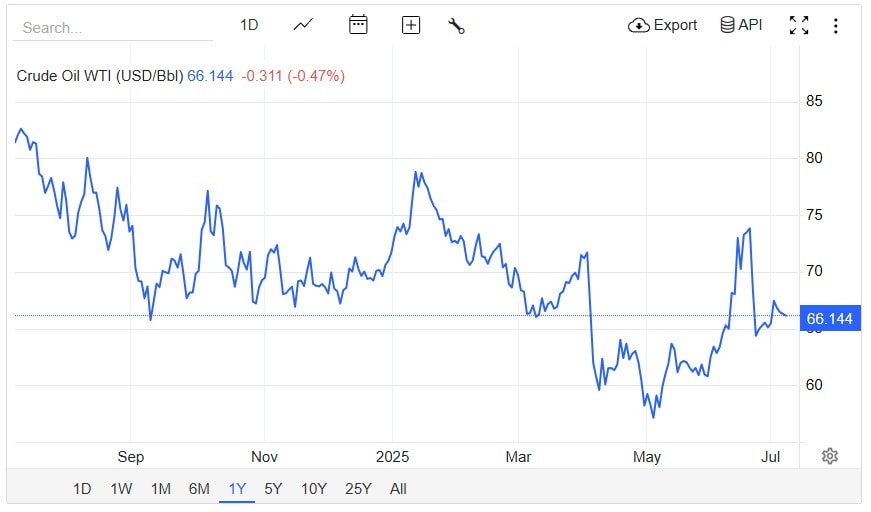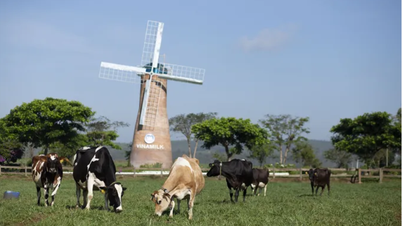
Gasoline price today 7/7/2025 in domestic market
From 3:00 p.m. on July 3, domestic gasoline prices decreased from 930 to 1,210 VND/liter, according to the announcement of the Ministry of Industry and Trade - Ministry of Finance.
Specifically, RON 95-III gasoline dropped sharply by VND1,210 to VND19,900/liter, while E5 RON 92 gasoline dropped by VND1,090 to VND19,440/liter. This price brought retail gasoline prices back to the same level as early June. Oil prices also dropped significantly, with diesel down VND940 to VND18,400/liter, kerosene down to VND18,130/liter, and fuel oil down to VND15,800/kg.
| Type of gasoline | Pre-adjusted price (VND/liter or VND/kg) | Reduction level (VND/liter or VND/kg) | Adjusted price (VND/liter or VND/kg) |
|---|---|---|---|
| Gasoline RON 95-III | 21,110 | 1,210 | 19,900 |
| E5 RON 92 gasoline | 20,530 | 1,090 | 19,440 |
| Diesel | 19,340 | 940 | 18,400 |
| Oil | 18,130 (unchanged) | 0 | 18,130 |
| Fuel | 16,600 | 800 | 15,800 |
This is the second consecutive time that RON 95 gasoline prices have decreased after five previous increases, bringing the price to its lowest level in four years, equivalent to June 2021. Since the beginning of the year, RON 95 gasoline has increased 15 times, decreased 13 times, while diesel has increased 14 times, decreased 13 times and remained unchanged once.
During this management period, the joint ministries did not use or set aside the Petroleum Price Stabilization Fund for gasoline and oil products. World petroleum prices fluctuated due to many factors such as OPEC+'s plan to increase production from August, increased crude oil reserves in the US, the prolonged Russia-Ukraine conflict, and Iran's suspension of cooperation with the IAEA. The average world prices recorded: RON 92 gasoline (blended with E5 RON 92) reached 77.826 USD/barrel, RON 95 gasoline was 79.622 USD/barrel, diesel oil was 86.932 USD/barrel, kerosene was 84.578 USD/barrel, and fuel oil was 420.764 USD/ton.
From July 1, VAT on gasoline will be reduced from 10% to 8% according to the National Assembly Resolution, contributing to reducing production and business costs and supporting inflation control. According to the Ministry of Industry and Trade, domestic gasoline prices in the first 6 months of 2025 will be lower than the same period in 2024 and previous years, creating favorable conditions for the economy .
Gasoline price today 7/7/2025 on the world market
In the recent trading session, most major fuels recorded a downward trend, of which Natural Gas decreased the most by 1.30%. Crude Oil and Brent oil prices also decreased by 0.48% and 0.54%, respectively. Fuels such as Gasoline, Heating Oil and Coal also decreased slightly.
In contrast, ethanol and Urals oil recorded positive price increases, up 0.73% and 1.18% respectively, indicating a slight recovery in some fuel commodities.


Last week, the world oil market experienced two sessions of price increase and three sessions of price decrease. This shows that investors have reduced their expectations of oil prices remaining high due to geopolitical tensions, instead focusing on closely monitoring the production situation and actual demand of the oil market.
Oil prices were also pressured by plans to revive nuclear talks between the US and Iran, along with uncertainties in global trade relations as the US tariff suspension deadline is just days away.
Europe is considering extending the current deal to avoid the risk of tariff escalation. British bank Barclays has revised its Brent price forecast to $72 a barrel in 2025 and $70 a barrel in 2026, based on an improved demand outlook. Phil Flynn, senior analyst at Price Futures Group, said there were signs of profit-taking by investors on concerns that OPEC+ could increase production more than expected.
Investors are cautious, closely monitoring OPEC decisions and economic developments from the Trump administration. A report from Axios said the US is expected to resume nuclear talks with Iran this week, while Iranian Foreign Minister Abbas Araghchi affirmed that Tehran remains committed to the Nuclear Non-Proliferation Treaty (NPT).
In addition, global trade tensions continue to weigh on markets as the US tariff deferral deadline is about to expire, while negotiations between the European Union and Washington have made little progress. The EU representative also said that the bloc could consider extending the current agreement to avoid the risk of tariff escalation.
Another important development was the decision by OPEC+ on July 5 to announce an increase in oil production in August. At a meeting in Vienna, Austria, Saudi Arabia, Russia and six other key OPEC+ members agreed to increase production by 548,000 barrels per day, exceeding the previous forecast of 411,000 barrels per day. This decision is expected to significantly affect the trend of oil prices in the coming time.
Forecast of domestic gasoline price trends in the coming period
Global crude oil prices are the biggest determinant of domestic gasoline prices. If Brent and WTI oil prices continue to rise due to geopolitical tensions, demand recovery or production cuts from OPEC+, domestic gasoline prices will tend to increase accordingly. Conversely, if supply expands or demand decreases, prices may go down.
Fluctuations in the USD/VND exchange rate also affect the price of imported gasoline. If the USD strengthens against the VND, import costs will increase, pushing up domestic gasoline prices.
Adjustments to taxes, fees and the State's price stabilization fund can increase or decrease retail gasoline prices. If the stabilization fund is used to offset costs, prices may stabilize or decrease slightly.
Domestic demand for gasoline, especially during peak seasons such as summer or holidays, also affects prices. If demand increases sharply while supply is limited, prices will tend to increase.
In the next adjustment period, if world oil prices maintain a slight upward trend or remain stable at a high level, along with exchange rate pressure and tax policies remaining unchanged, domestic gasoline prices may increase slightly or remain stable. Conversely, if there are signs of a decrease in global oil prices or if support measures from the stabilization fund are strongly applied, gasoline prices may be adjusted down or remain at the current level.
Source: https://baodanang.vn/gia-xang-dau-hom-nay-7-7-2025-ron-95-o-muc-cao-nhat-dau-tho-mat-0-48-3265137.html



































































































Comment (0)